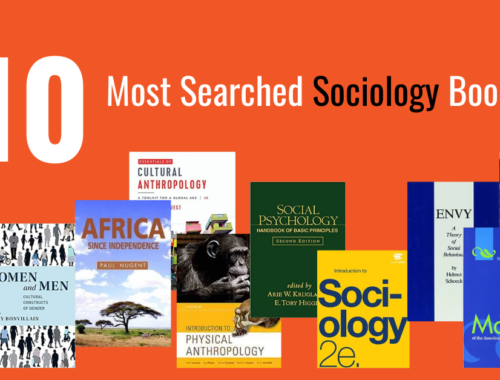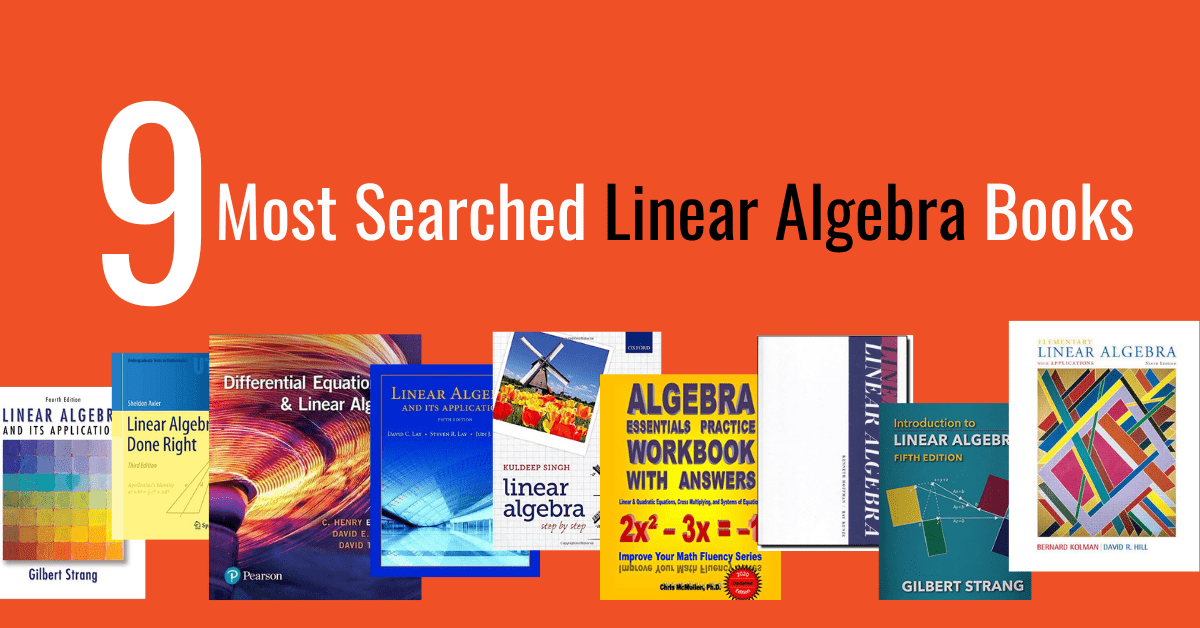
Not everyone is cut out to be a mathematician, but those who are deserve the best math textbooks out there. In subjects like linear algebra, it’s especially hard to find what the “best” looks like. Is it the book with the famous authors? How about the one with all the practice problems?
In this article, we’ll go over exactly what each of the most popular linear algebra textbooks has to offer. If you want a textbook that focuses on concepts more than proofs, we’ve got that. If you’re set on a book of practice problems, we’ve got that as well.
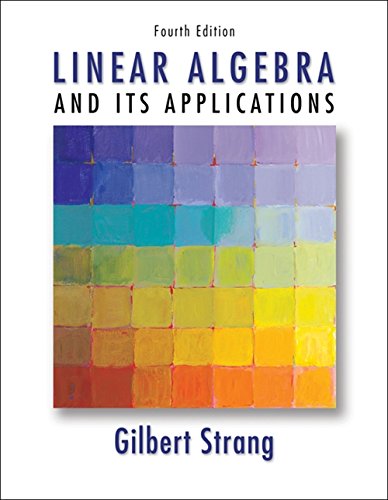 Linear Algebra and Its Applications, 4th Edition
Linear Algebra and Its Applications, 4th Edition
When it comes to linear algebra, you want to learn material from a reputable source. There’s no source more reputable than the author of Linear Algebra and Its Applications, Gilbert Strang.
Strang is not only a Professor Mathematics at MIT but an undergraduate at MIT with further accolades at both Oxford and UCLA. He puts his experience and understanding of the material into good use. Rather than focusing on the proofs in his textbook, he explains the concepts behind linear algebra. The book is written in a personable style that makes linear algebra more approachable to students rather than an impossible tangle of vectors.
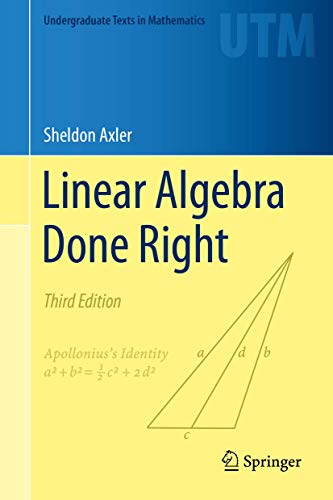 Linear Algebra Done Right (Undergraduate Texts in Mathematics)
Linear Algebra Done Right (Undergraduate Texts in Mathematics)
If you’re a math major still in your undergraduate years or even in graduate school, odds are you’ll come across this textbook. With over 300 new exercises added since the last edition, this is the new and improved Holy Grail for linear algebra.
With all those added exercises, you can imagine that this textbook is centered around linear algebra theory as well as examples to supplement. As stated by the textbook descript itself, the content focuses on “understanding the structure of linear operators on finite-dimensional vector spaces.” Students have agreed and added that the author managed to write complicated concepts clearly and concisely. At around $40, it’s a real bang for your buck!
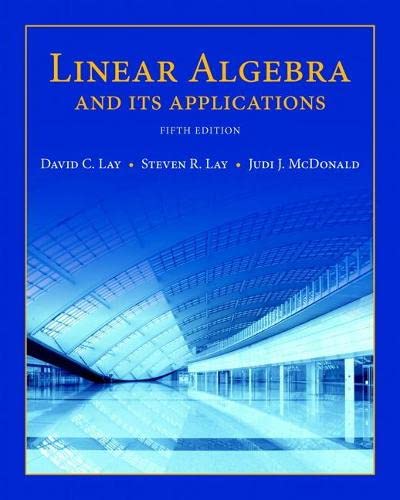 Linear Algebra and Its Application
Linear Algebra and Its Application
According to the authors of Linear Algebra and Its Applications, 5th Edition, young mathematicians coast along until they hit abstract concepts. Rather than keep those abstract concepts a hurdle, this textbook eases students into harder concepts like linear independence, vector space, and spanning.
The three authors include David C. Lay, Steven R. Lay, and Judi J. McDonald. All have co-authored either textbooks or research published in linear algebra research journals, so there’s no shortage of credibility here!
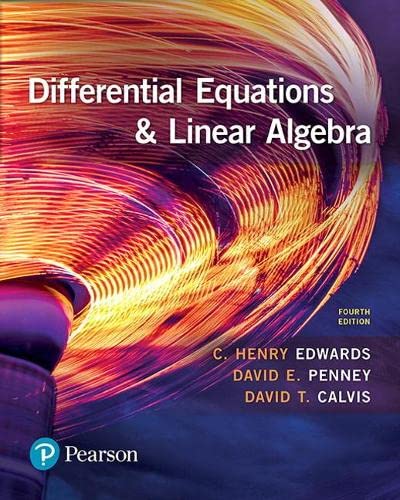 Differential Equations and Linear Algebra
Differential Equations and Linear Algebra
by C. Edwards, David Penney, David Calvis
While our list has mostly consisted of pure linear algebra texts, Differential Equations and Linear Algebra offers a refreshing twist. By combining algebraic and geometric approaches, this textbook helps students use mathematical modeling to analyze real-world problems. There are a variety of problems, figures, examples, and applications that will help students not only memorize material but apply it to real-world scenarios.
The reviews show that this textbook has plenty of examples to work through and learn from. Learn from past students and ask your professors about any examples that don’t go through every single step. Otherwise, this is a great textbook to lay the foundation for differential equations and linear algebra!
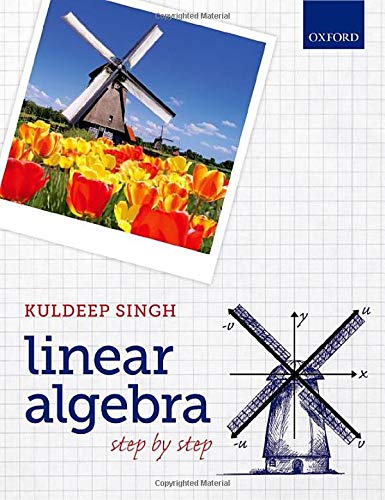 Linear Algebra: Step by Step
Linear Algebra: Step by Step
Reviews from teachers and students alike rave about Kuldeep Singh’s work with Linear Algebra: Step by Step. Rather than speak in stuffy mathematical jargon, Singh tries to write conversationally and break down concepts into simple terms.
As the title suggests, this textbook walks through concepts of linear algebra with step-by-step explanations of each new textbook. After new material has been introduced, there are plenty of questions and practice problems to test the reader’s understanding, so they aren’t just passively learning. Overall, this undergraduate level textbook provides a fantastic foundation in linear algebra.
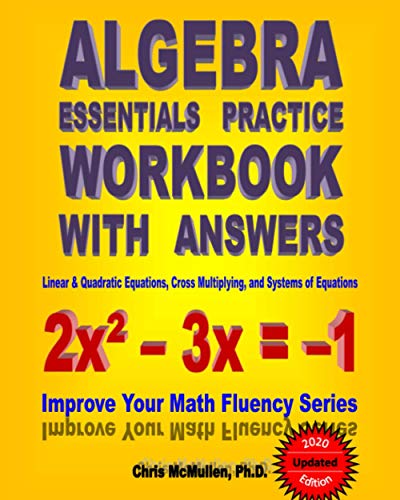 Algebra Essentials Practice Workbook with Answers: Linear & Quadratic Equations Cross Multiplying, and Systems of Equations: Improve Your Math Fluency Series
Algebra Essentials Practice Workbook with Answers: Linear & Quadratic Equations Cross Multiplying, and Systems of Equations: Improve Your Math Fluency Series
If you’re looking for a book that’ll force you to learn the basics of algebra, this is the book for you. This paperback practice workbook sits at just under $10, so you’ll be able to practice everything from seventh grade level to college level algebra at a reasonable price.
This book is 209 pages of practice problems, examples, and answers. You can solve problems on your own until you’ve nailed your fundamental algebra skills, including solving linear equations. In this case, practice does make perfect!
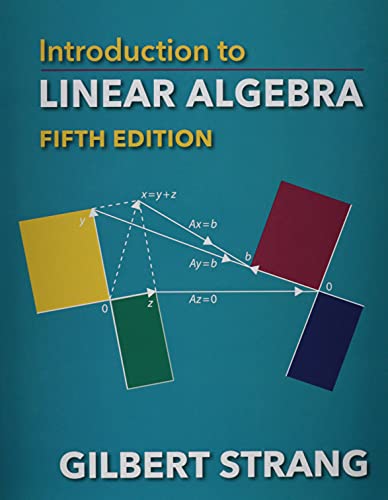 Introduction to Linear Algebra
Introduction to Linear Algebra
New to linear algebra? Well, do we have the textbook for you! Gilbert Strang’s Introduction to Linear Algebra lays out the basics of linear algebra for all undergraduate mathematicians. As we’ve mentioned before, Gilbert Strang has no shortage of academic and professional credentials in his field, so you can certainly count on him (no pun intended) to guide you in this subject.
In true Strang style, this textbook does not focus on proofs as much as concepts. You’ll get straightforward information about the basic theories of linear algebra along with exercises and solutions to help put what you learn in practice.
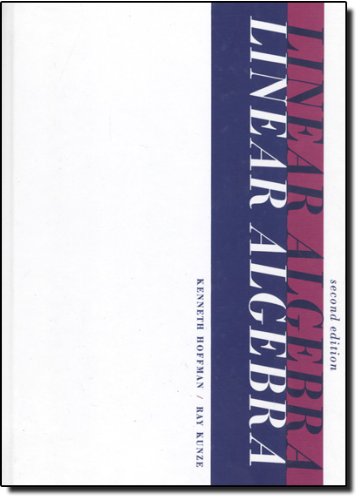 Linear Algebra
Linear Algebra
by Kenneth M Hoffman,Ray Kunze
In this popular introductory textbook for linear algebra, you can expect to learn about linear equations, linear transformations, determinants, bilinear forms, and much more. But don’t let the simple cover fool you- this textbook is full of intense concepts and “insanely difficult exercises,” according to one review.
But don’t let that scare you! Past students can speak to the quality of this textbook. The authors, Kenneth M. Hoffman and Ray Kunze, do a deep dive into linear algebra theory and proofs. They’ll lay a solid foundation for your undergraduate career if you’re willing to do more than skim over the material.
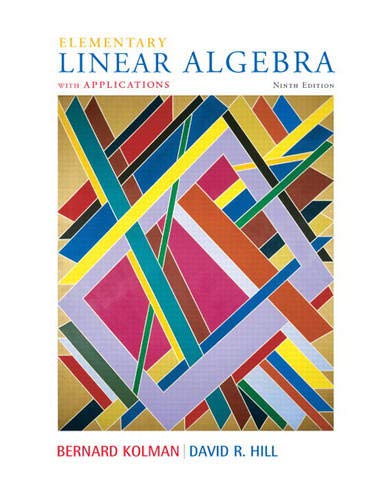 Elementary Linear Algebra with Applications
Elementary Linear Algebra with Applications
Last but certainly not least is Bernard Kolman and David Hill’s Elementary Linear Algebra with Applications. The “with Applications” bit is critical. In this introductory textbook, there are plenty of real applications so that you can see how linear algebra concepts and techniques will play out in the real world, especially in computer science.
Past students have appreciated how straightforward the text is as the authors go over basic concepts of linear algebra like linear transformations, differential equations, and eigenvalues. If your professor assigns this textbook for the semester, know that you’re in good hands.
Conclusion
To sum things up, there’s a surprisingly big market for linear algebra textbooks. However, once you narrow it down to the most searched books, you’ll start to figure out what you’re really working with. Some of these popular textbooks have excellent explanations of concepts but no mathematical proofs, which can set back pure math majors. Others have plenty of examples, but their explanations are left lacking. Whatever textbook you end up with, rest assured that between the authors and your professor, you’ll be successful!





